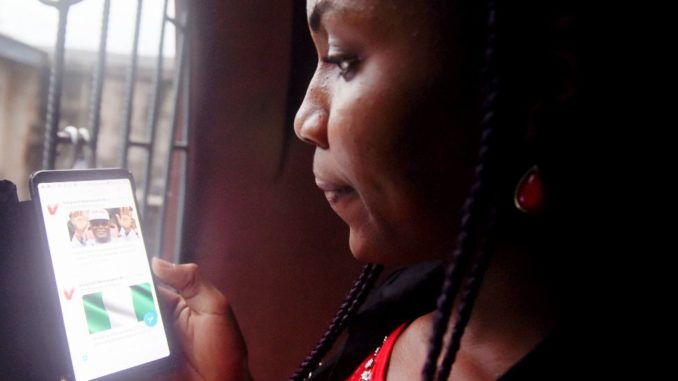
Twitter is back up and running in Nigeria after a seven-month suspension in Africa’s most populous country, where the U.S. social network had become a major tool of social protest.
“President Muhammadu Buhari has approved the lifting of the suspension of Twitter in Nigeria from midnight today,” announced Wednesday night the director of the National Agency for Information Technology Development, Kashifu Inuwa Abdullahi, quoted in a statement.
At 07:00 (06:00 GMT) Thursday, the social network was again accessible from Lagos, the economic capital of Nigeria, a journalist noted.
“We are happy that Twitter has been restored for everyone in Nigeria,” a spokesperson for the social network reacted. “Our mission in Nigeria – and around the world – is to serve the public conversation. We are deeply committed to Nigeria, where Twitter is used by people for commerce, cultural engagement and civic participation,” he added.
Nigerian authorities say that after several months of negotiations, Twitter has finally agreed to “all the conditions set by the federal government,” including taxation and management of content that does not comply with Nigerian laws.
Twitter has “also committed to establishing a legal entity in Nigeria during the first quarter of 2022,” the statement said. “Given the influence of Twitter in our democracy, our economy (…) our priority is to adapt, not ban Twitter,” the authorities added.
Twitter did not comment Thursday on the conditions that allowed it to lift its suspension.
Abuja had announced in early June 2021 the suspension of Twitter for “an indefinite period” after accusing the social network of having a “suspicious mission” against the Nigerian government, and to tolerate on its platform the messages of the leader of a separatist group inciting violence in southeast Nigeria.
The suspension of Twitter came two days after the social network deleted a message from President Muhammadu Buhari. The head of state had threatened to “treat with a language they understand” those responsible for the violence in southeastern Nigeria – attributed by the authorities to Igbo separatists -, reviving the terrible memories of the Biafran war that killed more than a million people in the 1960s
